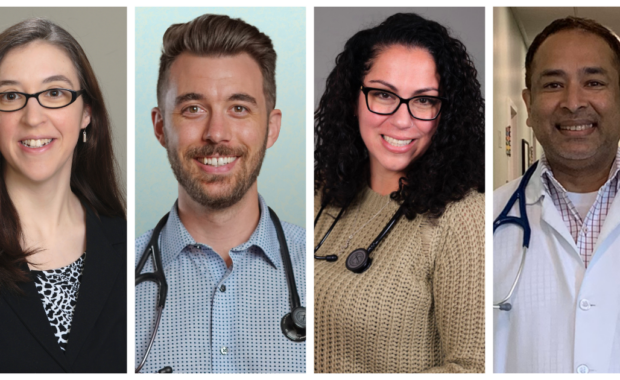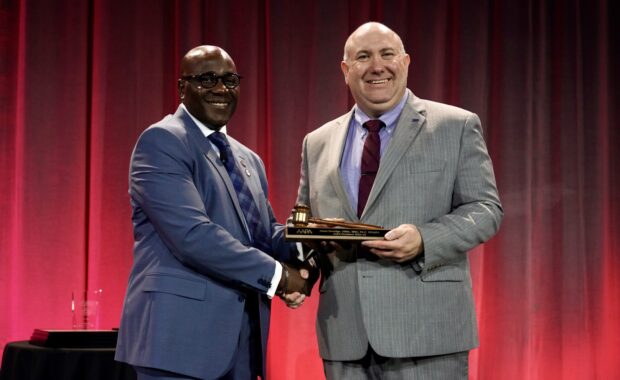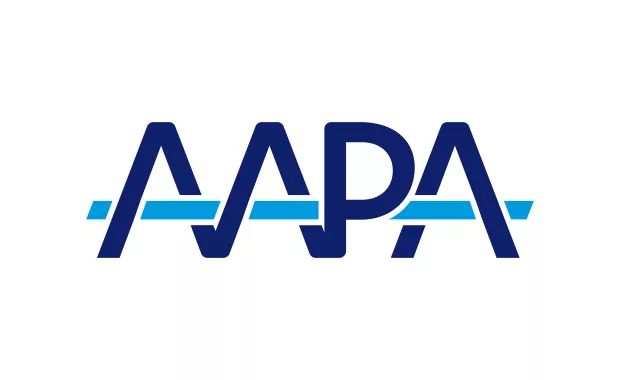How a PA in Telehealth is Helping Respond to COVID-19
Indiana University Health Ready to Meet Community Needs
March 17, 2020
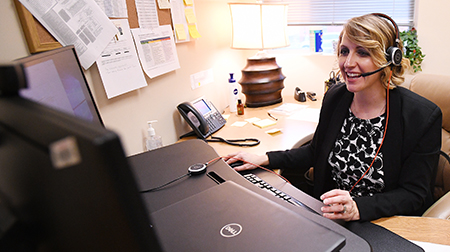
Like all medical facilities around the country, Indiana University Health (IU Health) is responding to coronavirus (COVID-19). In the midst of this pandemic, patients are relying on PAs and other healthcare providers more than ever to diagnose, treat, and care for their symptoms.
Since COVID-19 spreads so easily, telemedicine is quickly becoming an ideal way for patients and providers to communicate. Lindsey Kocher, PA-C, has experience in both primary care and emergency medicine and recently joined IU Health’s Virtual Care Division. She talked to AAPA about how IU Health is dealing with the COVID-19 pandemic, and how telemedicine is integral to the future of healthcare.
AAPA: Tell us about your role at IU Health.
Lindsey Kocher (LK): I worked for IU Health initially through the IU Health Bloomington Hospital emergency room in 2008. For the last four years I have worked in primary care and very recently accepted a position in the Virtual Care Division to head up a program focused on targeting our Accountable Care Organization patients who struggle to be seen in an outpatient setting due to physical and/or social barriers.
Can you tell us about the IU Health Virtual Visit app?
LK: The IU Health Virtual Visit app has been used as an on-demand service for patients seeking evaluation for various symptoms and concerns. We decided as the coronavirus was emerging in the U.S. that we could also utilize this service to offer patients free virtual coronavirus screenings that could be conducted in the safety and comfort of their own homes.
[Rush University PAs Integral to Coronavirus Response]
How does telemedicine specifically show promise for treating infectious disease/COVID-19?
LK: First and foremost, I believe we have the ability to improve containment efforts since we are able to properly educate patients on when and how to care for themselves and their family. We have been able to identify at-risk individuals and facilitate their safe transport to a health facility with proper infection prevention protocols already in place. Regarding infectious disease, telehealth can certainly expand our antibiotic stewardship by preventing or limiting unnecessary exposure of many viral illnesses in outpatient settings where there is a much higher risk of serious infection transmission among our most fragile patients.
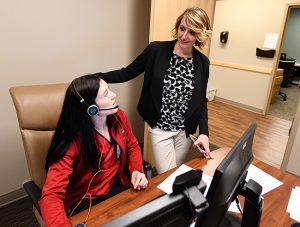
How is IU Health optimizing PAs and NPs to respond to the COVID-19?
LK: This has really been a team effort, to say the least. As a PA, I’ve been able to provide medical guidance for those with a complex or “gray” risk area during the screening and help facilitate further evaluation as needed. I’ve also been able to hop on calls and screen patients myself when it gets busy and get a sense of the workflow so we can update our process to make our work the most effective it can be for our patients and our staff.
What are some of the novel things you are planning for, e.g. drive-by swabs, etc.? How are PAs involved in this?
LK: As this process is always evolving, we are trying to stay flexible in our process as well. My role is to do anything that needs to be done — from seeing patients to helping develop protocols and quality control. This has really been an “all-hands-on-deck” approach and we are all doing what we can to provide the public with the reassurance they seek with the most accurate known recommendations.
How are PAs uniquely prepared to serve on the front lines of this and other health crises?
LK: Like any other medical provider who dedicates their career to helping others, that’s what we PAs are prepared to do, at all times. The type of help changes depending on public need. For me right now, this is where I’m needed, and I feel so grateful to have the opportunity to provide reassurance to patients who need it. We know that the virus itself is not as much of an actual threat as the fear of it overwhelming the dependability and infrastructure of the medical systems both locally and regionally.
[Virtual Health PAs Share Insight to Rapidly Growing Healthcare Space]
As you mount the COVID-19 response – what advice would you give to other PAs?
LK: Stay calm. Educate your patients and be the calm presence in the storm. Help where and when you can and play whatever role your community needs you to play in order to provide the service you took an oath to provide.
Lindsey Kocher is a PA in IU Health’s virtual care division.
You May Also Like
Rush University PAs Integral to Coronavirus Response
Virtual Health PAs Share Insight to Rapidly Growing Healthcare Space
The Top 7 Things Every PA Should Know About Virtual Medicine and Telemedicine
Thank you for reading AAPA’s News Central
You have 2 articles left this month. Create a free account to read more stories, or become a member for more access to exclusive benefits! Already have an account? Log in.
